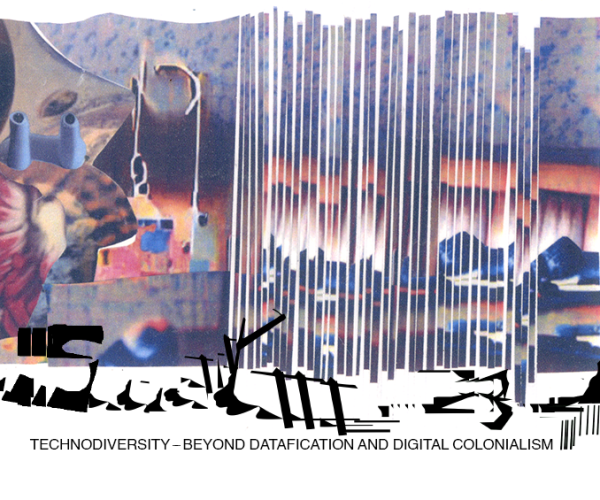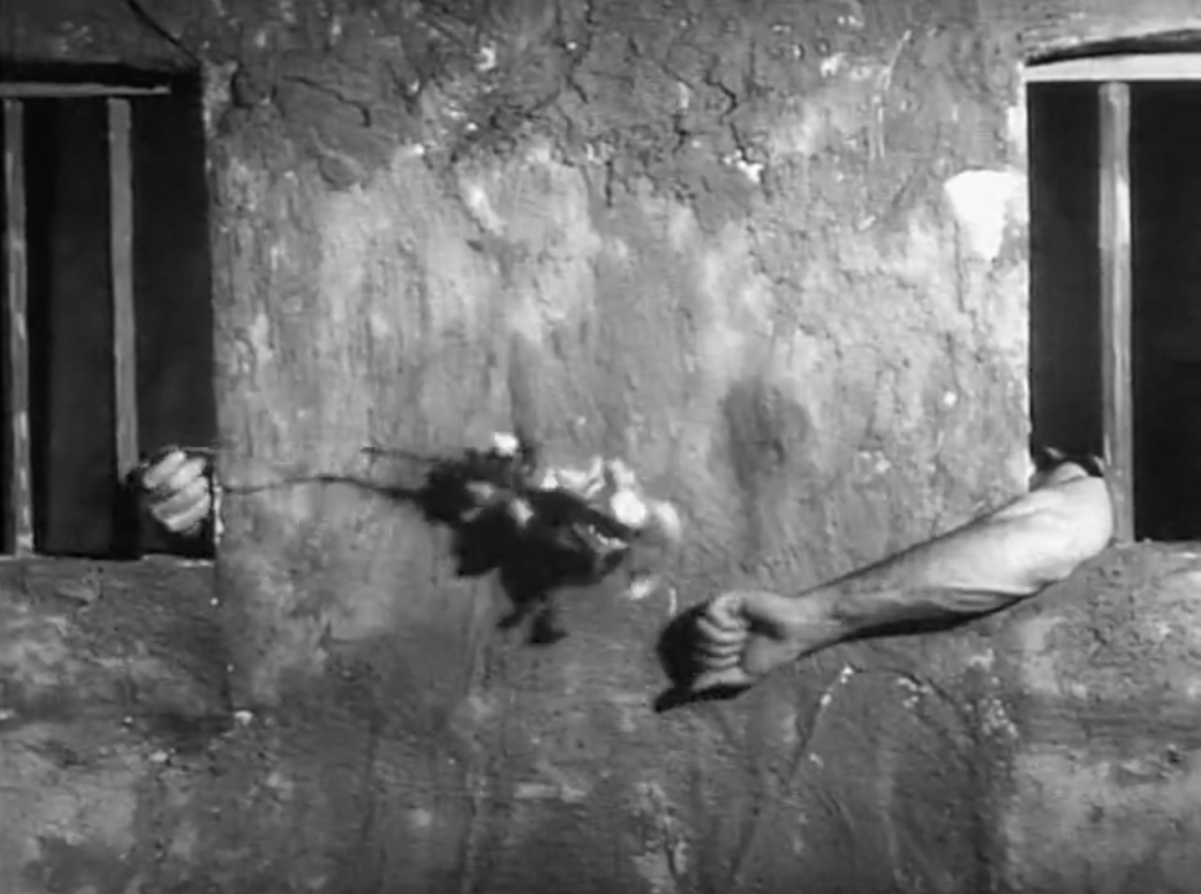In the belief that art students can only learn to think independently when knowledge, imagination and reflection combine to work together in an unorthodox and critical way, Studium Generale Rietveld aims to encourage critical forms of learning, making and thinking. It follows a new research trajectory every year around a specific theme that links up with current events, issues and discussions in the (art) world. Artists and theoreticians from home and abroad offer a broad spectrum of perspectives on the overarching themes with lectures, performances, presentations and screenings.
After a preliminary programme, which also includes film screenings, reading groups, workshops and publications, there is an annual four-day conference festival in collaboration with guest curators who make contact with urgent critical discourses from different perspectives and practices. This takes place at the Stedelijk Museum Amsterdam and is open to the public.
Through a revision of the work of The Digital Witchcraft Institute we will cover a comparative analysis between tech and the supernatural, the use of the digital realm as a spiritual facilitator, and magic as a design methodology. This trajectory will allow us to evaluate the possibilities for mystical and religious technologies in the 21st century.

Workshop series led by Mariana Fernández Mora:
In the age of AI, how does the concept of “voice” start to be reshaped by generative technologies like ChatGPT, Stable Diffusion or MidJourney?

Me and my closest far away friend were messaging about who sees who. We wonder about witch-hunty-ness; cutting to expose, separate and name the non-conforming. Hoist it up above the surface into known form. Let’s see everything clearly. The ciliary muscles contract and the lens fattens. And what about those who "turn a blind eye", or "look through their fingers"? Things could happen so long as we don’t articulate too much in the open, don’t pull focus. Here things are underneath, still violent but maybe brooding with possibility.

Introduction to Stadium Generale '23/'24 “Technodiversity”, Rietveld Uncut, website launch, Techno Spectres talk & lecture-performance:
January 17
14:00-15:30
@ Rietveld’d GYM

Writing on Water is a program of artists' films exploring the technological as ecological. The films examine the planetary costs of technology beholden industry and proposes revolutionary categories towards a more elemental technology that consider the life and logics of minerals, plants, animals, and future ancestors.
Curated & hosted by Jo-Lene Ong with Bo Wang.
Beamclub takes place in the Theory Stairs of the FedLev building.

Human and non-human animals seek refuge because of war, terror, hunger, exploitation, climate change, or through structural forms of everyday oppression and exclusion. You find refuge in a camp, bomb shelter, safe space, in a body, state of being, state of mind. Or you refuge in a (self-chosen) family, community, movement, or collectivity.

A new edition of Studium Generale will start in January '23.

Frans Hals Museum & Studium Generale Rietveld Academie present:
The Art of Critique
v^√√v^──√v^√v^──√v^√√v^──What does institutional critique mean today?

14:00-16:00 @ https://studiumgenerale.rietveldacademie.nl/

How can we liquefy our ways of being? How can we think from and with the ocean?

studio Generale Rietveld Academie 2020–2021
Resilient Bodies
Strategies and Practices for Fluid Embodiments
Conference-festival

14:00-15:30
"Let’s hold each other until it’s all over" – Shan Kelley*

2:00–3:30PM

Wednesday February 10, 5:00 PM - 6:00 PM
2021 Studium Generale Lexicon
Reclaiming Y/Our Non? human Waterbodies
written by CPR (Charlotte Rooijackers) and designed by Pernille Knudsgaard, Dongseok Min, Eleanor Schilling (under supervision of David Bennewith)

20 Jan, Karen Archey (lecture)
After Institutions: Care and Change in Times of Crisis

13 Jan Taka Taka (virtual presentation)
Cybernetics - on social practice (AIDS/HIV) : ACT UP

2:00 PM – 3:30 PM, Rietveld’s Gym (and live-streamed on the website)

7 walks with Nikos Doulos
#1 28 Oct
5:00–6:30PM Outdoor
8 writing workshops with y/our lexicon writer CPR (Charlotte Rooijackers)
#1 28 Oct
5:00–6:30PM Fedlev Auditorium
14:00-15:30 at the Gym and live-streamed

Dragtivist Taka Taka will present a character construction workshop with tools that they have developed from their camp - dragtivist practice, the result of which will be a public presentation. Taka Taka welcomes students from all departments, genders and sexualities.

4 introductory seminars with Giulia Crispiani
#1 21 Oct
5:00–6:30PM online

8 reading groups with Jay Tan
#1 21 Oct
5:00–6:30PM Library

The online reading group 'ruins are relics' is borrowing its title from Etel Adnan's poetry to speak about vexed cartographies and untamed optics when thinking nearby, with and beyond the body. Drawing on bodies dislocated, starving and disobedient, on bodies transcendental, manifesting (unrequited) desires and oppressions and pains, the reading group aims to find a trajectory for wording that, which cannot be fully grasped through language. Through researching on imbricating histories, on subjects varying from indigeneity, migration and diaspora to mental breaks and physical wounds, the monthly sessions will try to disrupt 'normal realities' paraphrasing the words of the artist Alina Popa, to become with otherworldly feelings and demonised fragilities. Each of the sessions will include a series of collective readings and tasks based on poetic theses, mythic narratives and somatic rituals. The students will also be invited to initiate their own exercises according to their desires and needs.

14:00-15:30 at the Gym and live-streamed

Originally a character construction-study hosted by drag thing Taka Taka during Studium Generale 2020, the workshop students were expected to be able to generate a character and complete a 3-minute performance to be presented in a final public moment, ie at the Stedelijk Museum in spring of 2020. However, due to the migration of Rietveld UNCUT into to the digital realm, Taka Taka and founding students Aurélia Noudelmann, Papa Yorick, Mingrui Jiang, Ana Resende, Ingeborg Kraft Fermin, Julius Stahlie, Dariya Trubina, turned the cancelation of Relating Colour to Partying: How Do We Party Each Other? For Studium Generale Rietveld Academie at Stedelijk Museum Amsterdam into a new online queer notebook and public platform of interdepartmental exchange:
Date: Wednesday 11 March
Time: 13.30 - 18.00
Location: Gym, Rietveld Building
Date: Wednesday 5 March
Time: 13.30 - 18.00
Location: Gym, Rietveld Building
Studium Generale Rietveld Academie and Rietveld Uncut collaborate on an extensive, artistic research trajectory in a four-day conference-festival curated by Karen Archey, Mark Paterson, Rizvana Bradley and Jack Halberstam and exhibition at the Stedelijk Museum Amsterdam.

What does it mean for art making if the “human” is but one life form among many? By the late twentieth century, our time, a mythic time, we are all chimeras, theorized and fabricated hybrids of machine and organism; in short, we are cyborgs. This cyborg is our ontology; it gives us our politics. (from Donna Haraway’s A Cyborg Manifesto, 1983) In the similarity of clowns to animals the likeness of humans to apes flashes up: the constellation animal/fool/clown is a fundamental layer of art. (Theodor W. Adorno quoted by Anselm Franke in Ape Culture, 2015)

action, actor, affect, alienation, altar, arena, audience, body, dance, effect, emancipation, event, carnival, class, collaboration, collective, costume, cruelty, desire, director, gesture, happening, idea, image, intervention, magic circle, mass, masquerade, mediation, movement, moving image, mystery, participation, performance, play-ground, power, practice, presence, process, protest, puppet, re-enactment, relation, screen, situation, social, space, spectacle, spectator, stage, staging, state, subversion, temple, text, theatricality, time, voice, zombie

4-day CONFERENCE FROM MARCH 19th - 23rd at The Brakke Grond in Amsterdam

By exploring the potentialities of ecological worldviews, old and new, through theory and art, WHERE ARE WE GOING, WALT WHITMAN? seeks to accelerate, accumulate, animate and activate our poetical and political understanding of the world. The project will not map a North, South, East, West. No upside, no downside, no center, no periphery, no order, no border. It rather reveals a meshwork of criss-cross paths, rhythms, and flows. It wants to be a guide for self-learners wishing to think freely and critically about and through art and 'a thousand ecologies'.

Drawing inspiration from The Role of a Lifetime (2003), by artist and filmmaker Deimantas Narkevičius WE ARE THE TIME explores the role of lifetime and life experience as a crucial source of ideas and inspirations, as a force that shapes ones’ art practice. Life experience is always generated as the intersection between the personal rhythm of one’s life and the larger societal perspective. How do we position ourselves in time? What are the decisive moments in our personal lives? What is our relation to the historical moment or context? How do we weave them into our life-narratives?
Gerrit Rietveld Academie
Jorinde Seijdel
Jort van der Laan
Studium Generale wants to show how art and design are linked with other domains (from the personal to the political, from the vernacular to the academic), how our ‘now' is linked with past and future, our ‘here' with ‘elsewhere'.
Preliminary lecture/workshop/reading group programme + conference-festival including lectures, talks, readings, screenings, presentations, workshops & performances
Gym Gerrit Rietveld Academie, Stedelijk Museum Amsterdam, and online
Students & faculty at all departments + general public
2000
knowledge, imagination, reflection, discourse, unorthodox, critical, guest curators, academia, decolonisation, eurocentrism, future pedagogy, future philosophy, politics, research, ecology, technology
4 introductory seminars with Giulia Crispiani
#1 21 Oct
5:00–6:30PM online
In this series of 4 online seminars, we will explore the implications of "embodiment": whereby 'body' is meant as a territory with no fixed boundaries, as a body amidst other bodies, in the space of the possible between bodies. As politics control and shape bodies, theories, language and practice speculate to liberate those very same bodies: what does it imply to review and unlearn, rewrite histories and reclaim space, in that continuous movement between inside and outside, between our own body and the body of others? How do we inhabit our body? How do we enact politics? What do we do with theory?
Provisional Bibliography: Judith Butler, Notes Toward a Performative Theory of Assembly; Audre Lorde, The Master's Tools Will Never Dismantle the Master's House, Emma Goldman, Anarchy and the Sex Question; Paul B. Preciado, Anal Terror and Countersexual Manifesto; Maggie Nelson, The Argonauts; Larry Mitchell and Ned Asta, The Faggots & Their Friends Between Revolutions
This seminar series is intended for students who are not yet familiar with critical theory but are curious to gain insight into the underlying concepts of the current edition of the Studium Generale.
October 21; November 4, 19; December 2, from 17:00-18:30, Online
In principle, participation in a group concerns the entire series.
Sign in here: https://outlook.office365.com/owa/calendar/StudiumGenerale1@grac.onmicrosoft.com/bookings/
GIULIA CRISPIANI is a writer and visual artist based in Rome, where she is an editor for NERO Editions. She holds degrees in a Bachelor of Industrial Design, University of Rome Sapienza, Rome (2005—2009); Bachelor of Art (Ceramics) with Honors (Art & Research with University of Amsterdam) from the Gerrit Rietveld Academie, Amsterdam (2011—2015); and a Master of Art Praxis, Dutch Art Institute, Arnhem (2015—2017). She had been involved in independent projects between Amsterdam, Tehran and Beirut and she was recently part of the exhibitions Coming Soon at Fondazione Sandretto Re Rebaudengo, Torino (2018) and But We Don’t Leave Pyramids at Charsoohonar, Tehran (2019). In her artistic practice she brings together her backgrounds in industrial design, object making, philosophy and art theory, as text and image based works that manifest in live and printed formats such as performances and publications.
Image: still from Jean Genet's film Un Chant d'Amour (1950)
